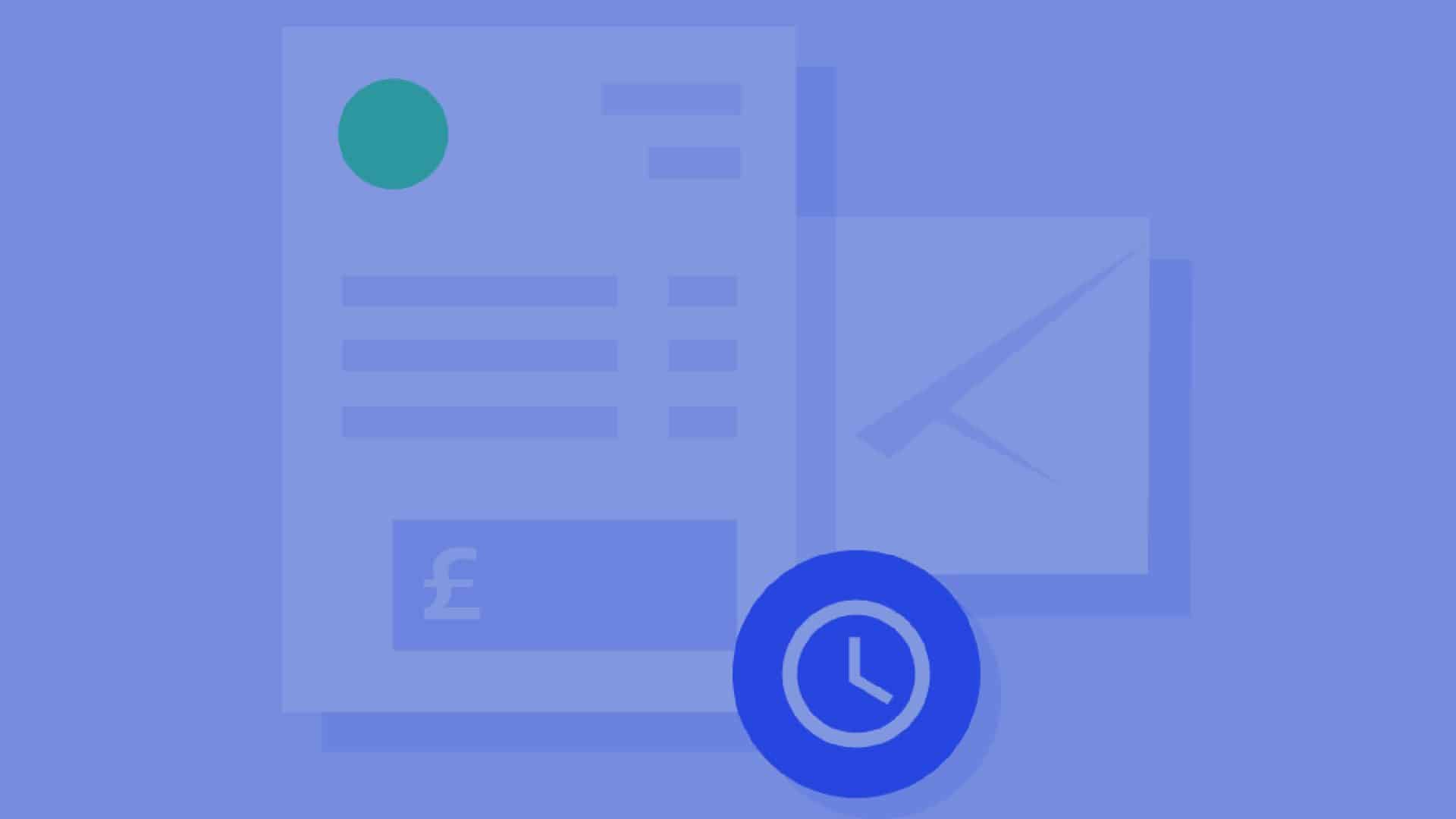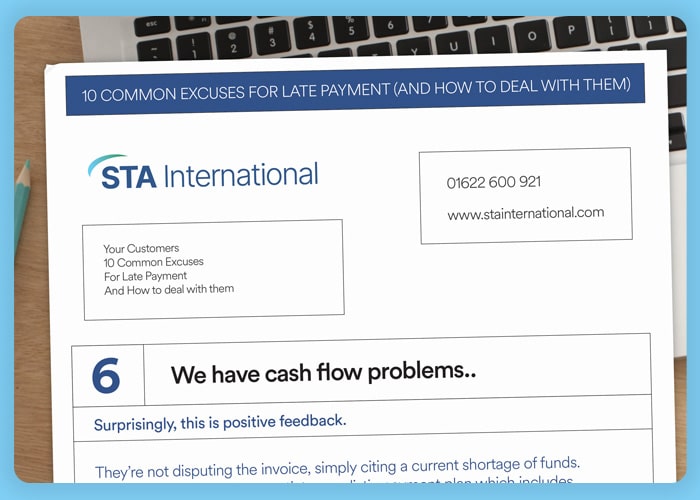You will often read about the ‘late payment culture’ where many businesses only start to think about your invoice when it becomes due for payment. By definition, this culture means your invoice is overdue or late before even being considered for payment.
Adopting a late payment culture demands its perpetrator be skilled in deception: They must be ready with their excuses for non-payment, and the more plausible, the better.
We encounter late payment reasons daily, so we have looked at the most common excuses and how you might overcome them and get paid.
“Invoice, what invoice?”
This question is among the most common deflections for delaying payment. Send a copy of the invoice immediately via email or the customer’s preferred method of communication. Ask them to confirm receipt, reiterate your payment terms and applicable late payment penalties, and inform them of your escalation plan.
“The invoice's name/address/balance is wrong”
Double-check the invoice for errors. If there is a mistake, amend it with a new due date and re-issue it to the customer. Send via their preferred communication method and follow up with a call to check that the invoice is correct this time. However, if the original invoice is valid, gain a commitment to pay.
“We'll pay you when our customer pays us.”
Ask for details about the payment they’re waiting on – the name and address of the debtor and when they expect payment. Make extensive notes so you know when to chase for invoice payment. You could negotiate a payment plan at this stage or await full payment on an agreed date.
“We've already paid.”
Ask for proof; when was the payment made, and who approved it? If they have paid, they have the incentive to prove it. Your questioning will quickly reveal if they still need to pay.
“We've got issues with the goods/service provided.”
Here, it is vital to record their feedback, starting with details of their concern. If you can give immediate feedback, do so. If you need to investigate their concerns, commit to getting back to them at a given date or time. Gain their commitment to making payment once you have addressed their concerns.
If you provide a service, you may hear excuses like ‘We still need to introduce the recommendations you made.’ Here, you must rely on your terms and conditions to push back their misunderstanding, asserting that delivery means you have completed your contractual obligation, and they must pay your invoice.
“We have cash flow problems.”
Surprisingly, this is positive feedback; they’re not disputing the invoice, simply citing a current shortage of funds. You can negotiate a realistic payment plan, which includes immediate part payment. Confirm the payment plan in writing and immediately challenge any defaults.
“Our system is down.”
Ask how long the problem has existed and when they expect to resume normal service. Should their answer be vague, ask them to find a workaround so that they can make your payment sooner. Gain a commitment to pay and diary your next call to them.
Ask why, and let them take the strain. If the absence of a director is their response, ask where the director is and why they cannot authorise by telephone or email.
If your questioning leads nowhere, ask to speak to the most senior officer present, preferably the company secretary, who has executive responsibility. Either this persistence will lead your contact to yield, or you have escalated the problem and increased the chances of payment.
“I thought we had 60 days to pay, not 30.”
It’s best practice to include payment terms on every invoice you send so your customer knows when payment is due. Without defined terms, the default by law is 30 days from receipt of the invoice.
Remind the customer that, under the Late Payment of Commercial Debts (Interest) Act 1998, you can claim interest and compensation/reasonable costs once an invoice becomes overdue.
“We've changed our bank account.”
Whilst this is a legitimate reason for very short-term delays in payment, it should only cause a few days of disruption, and the business will have contingency plans for the switchover period.
Ask for proof of the situation, discuss other payment methods, and agree on a date and time for you to call back, ideally within two working days.
If all else fails, we’re here to help. We have years of experience in successfully resolving excuses for late payments. Contact us today to learn more.

